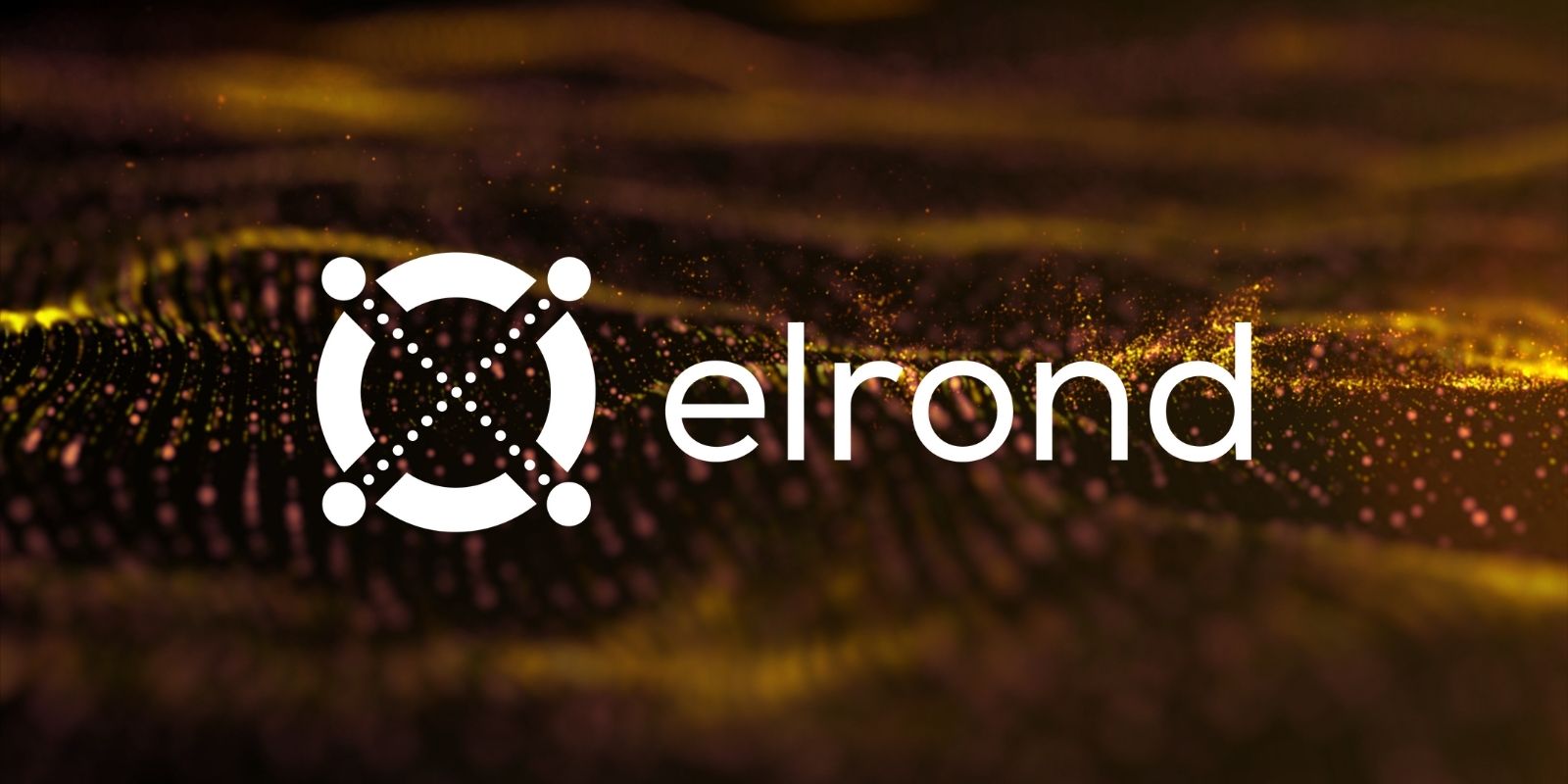Elrond (EGLD): The Internet-Scale Blockchain

- Understanding Elrond’s innovative approach to blockchain technology
- Exploring the key features that make Elrond an internet-scale blockchain
- The role of sharding in Elrond’s scalability and efficiency
- How Elrond’s Adaptive State Sharding sets it apart from other blockchains
- The potential impact of Elrond on the future of decentralized applications
- Comparing Elrond’s performance with other leading blockchain platforms
Understanding Elrond’s innovative approach to blockchain technology
Elrond’s innovative approach to blockchain technology sets it apart from other projects in the space. By utilizing a unique architecture called Adaptive State Sharding, Elrond is able to achieve high scalability without compromising security or decentralization. This approach allows the network to process a large number of transactions quickly and efficiently, making it ideal for applications that require high throughput.
One of the key features of Elrond’s blockchain is its use of a secure proof-of-stake consensus mechanism, which helps to ensure the integrity of the network. This mechanism also helps to reduce energy consumption compared to traditional proof-of-work systems, making Elrond a more environmentally friendly option for blockchain applications.
In addition to its technical innovations, Elrond also stands out for its focus on user experience. The project aims to make blockchain technology more accessible to the general public by offering a simple and intuitive interface for interacting with the network. This focus on usability has helped Elrond attract a wide range of users, from developers to businesses looking to leverage blockchain technology for their applications.
Overall, Elrond’s internet-scale blockchain offers a compelling solution for those looking to build scalable and secure decentralized applications. With its innovative approach to blockchain technology, Elrond is well-positioned to become a key player in the blockchain space in the coming years.
Exploring the key features that make Elrond an internet-scale blockchain
Elrond is a blockchain platform that stands out for its internet-scale capabilities, offering high throughput and low latency for decentralized applications. One of the key features that make Elrond unique is its Adaptive State Sharding mechanism, which allows the network to process transactions in parallel, significantly increasing its scalability. This innovative approach ensures that Elrond can handle a large number of transactions per second, making it suitable for a wide range of use cases.
Another important feature of Elrond is its Secure Proof of Stake (SPoS) consensus mechanism, which combines the security of Proof of Work with the efficiency of Proof of Stake. This consensus algorithm ensures that the network remains secure and decentralized while also being energy-efficient, making it more sustainable in the long run. Additionally, Elrond uses a mechanism called “Secure Proof of Stake” to prevent centralization and ensure a fair distribution of rewards among network participants.
Elrond also offers a user-friendly experience through its intuitive developer tools and interfaces, making it easier for developers to build and deploy decentralized applications on the platform. The platform supports multiple programming languages, allowing developers to choose the language they are most comfortable with. This flexibility attracts a diverse range of developers to the Elrond ecosystem, fostering innovation and growth.
In conclusion, Elrond’s internet-scale blockchain is characterized by its Adaptive State Sharding mechanism, Secure Proof of Stake consensus algorithm, and user-friendly developer tools. These key features set Elrond apart from other blockchain platforms, making it a promising option for those looking to build scalable and secure decentralized applications.
The role of sharding in Elrond’s scalability and efficiency
Sharding plays a crucial role in enhancing Elrond’s scalability and efficiency. By dividing the network into smaller shards, Elrond can process transactions in parallel, significantly increasing throughput. This approach allows Elrond to achieve high levels of scalability without compromising security or decentralization.
Sharding also helps Elrond achieve greater efficiency by reducing the computational load on individual nodes. With each shard responsible for processing only a fraction of the total transactions, nodes can operate more efficiently, leading to faster transaction speeds and lower fees. This design ensures that Elrond can handle a high volume of transactions without experiencing network congestion or delays.
Furthermore, Elrond’s adaptive state sharding mechanism dynamically adjusts the number of shards based on network demand. This flexibility allows Elrond to scale up or down as needed, ensuring optimal performance at all times. By efficiently managing resources and workload distribution, Elrond can maintain high levels of efficiency even during peak usage periods.
How Elrond’s Adaptive State Sharding sets it apart from other blockchains
Elrond’s Adaptive State Sharding is a groundbreaking feature that truly sets it apart from other blockchains in the market. This innovative technology allows Elrond to achieve internet-scale performance by dividing the network into smaller shards, each capable of processing transactions independently. This means that as the network grows, Elrond can easily scale by adding more shards, ensuring high throughput and low latency for all users.
One of the key advantages of Elrond’s Adaptive State Sharding is its ability to dynamically adjust the number of shards based on network demand. This means that during times of high traffic, Elrond can increase the number of shards to accommodate the increased load, ensuring that the network remains fast and efficient. Conversely, during periods of low activity, Elrond can reduce the number of shards to save resources, making it a highly flexible and efficient blockchain solution.
Another important aspect of Elrond’s Adaptive State Sharding is its security features. By dividing the network into smaller, independent shards, Elrond reduces the impact of potential attacks, as an attacker would need to compromise multiple shards to disrupt the network. This makes Elrond a highly secure blockchain platform, capable of protecting user assets and maintaining the integrity of the network.
Overall, Elrond’s Adaptive State Sharding is a game-changer in the world of blockchain technology. Its ability to dynamically adjust the number of shards, its high level of security, and its internet-scale performance make it a top choice for developers and users alike. With Elrond, you can experience fast, secure, and efficient blockchain transactions like never before.
The potential impact of Elrond on the future of decentralized applications
Elrond has the potential to revolutionize the future of decentralized applications (dApps) with its innovative technology and internet-scale blockchain. By offering high throughput, low latency, and low transaction fees, Elrond provides a scalable solution for developers looking to build efficient and secure dApps.
With its Adaptive State Sharding mechanism, Elrond can process thousands of transactions per second, making it one of the fastest blockchain platforms available. This speed and efficiency open up new possibilities for dApp developers, allowing them to create more complex and interactive applications without worrying about network congestion or high costs.
Furthermore, Elrond’s Secure Proof of Stake (SPoS) consensus mechanism ensures the security and integrity of the network, making it a reliable platform for dApp deployment. This combination of speed, scalability, and security positions Elrond as a frontrunner in the blockchain space, with the potential to drive the next wave of innovation in decentralized applications.
Comparing Elrond’s performance with other leading blockchain platforms
When comparing Elrond’s performance with other leading blockchain platforms, it becomes evident that Elrond stands out in terms of scalability, speed, and cost-effectiveness. Elrond’s unique Adaptive State Sharding mechanism allows for high throughput, processing up to 15,000 transactions per second, making it one of the fastest blockchain networks available. This speed is crucial for applications requiring real-time data processing and high transaction volumes.
Additionally, Elrond’s architecture is designed to be highly efficient, consuming minimal energy compared to other proof-of-work blockchains. This energy efficiency not only reduces the environmental impact but also lowers transaction costs, making Elrond a more cost-effective option for users and developers alike.
Compared to platforms like Ethereum and Bitcoin, Elrond’s performance is superior in terms of scalability and speed. Ethereum, for example, has been plagued by network congestion and high gas fees, limiting its ability to scale effectively. Bitcoin, on the other hand, has slower transaction times and higher fees, making it less practical for everyday transactions.



